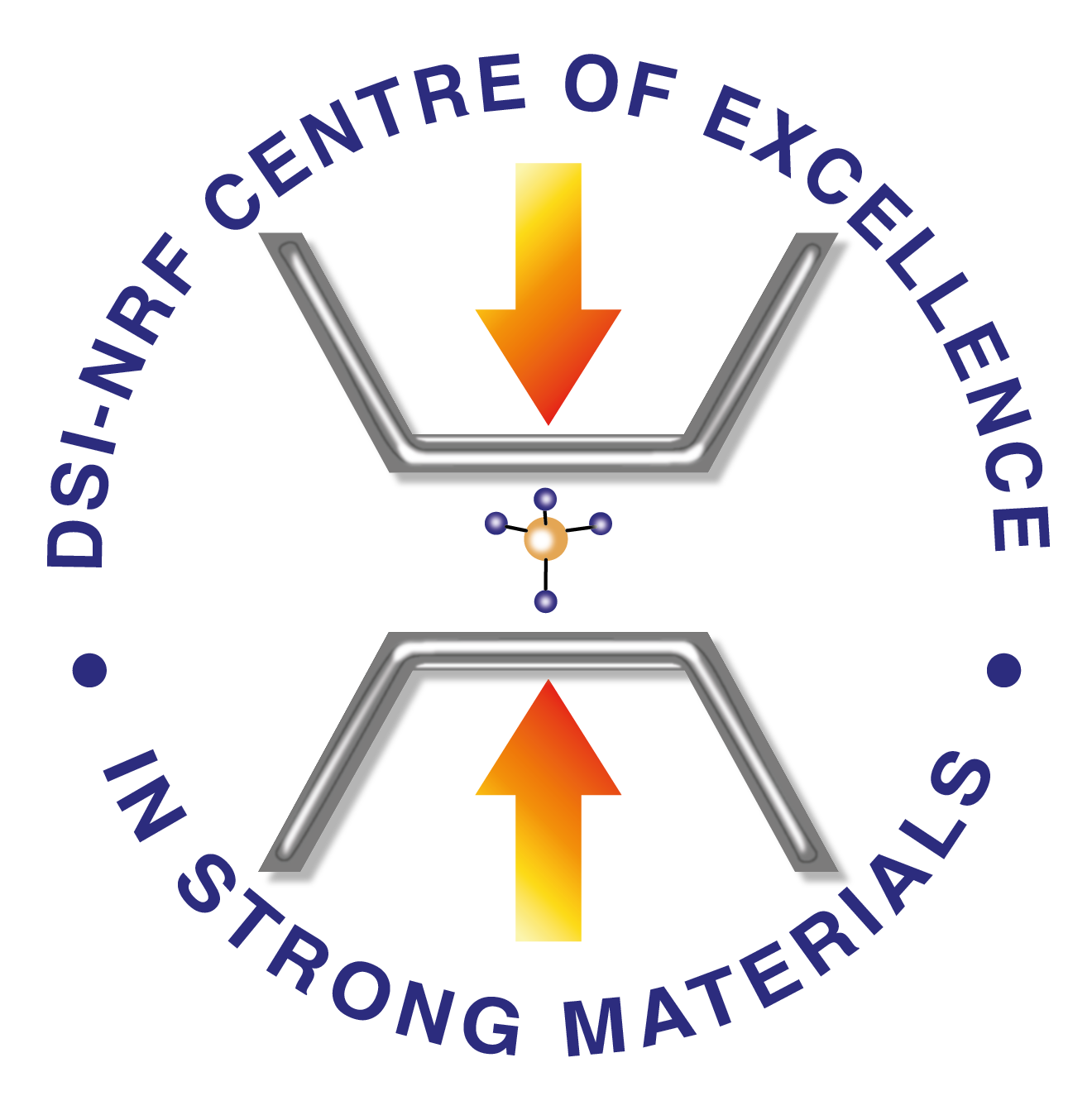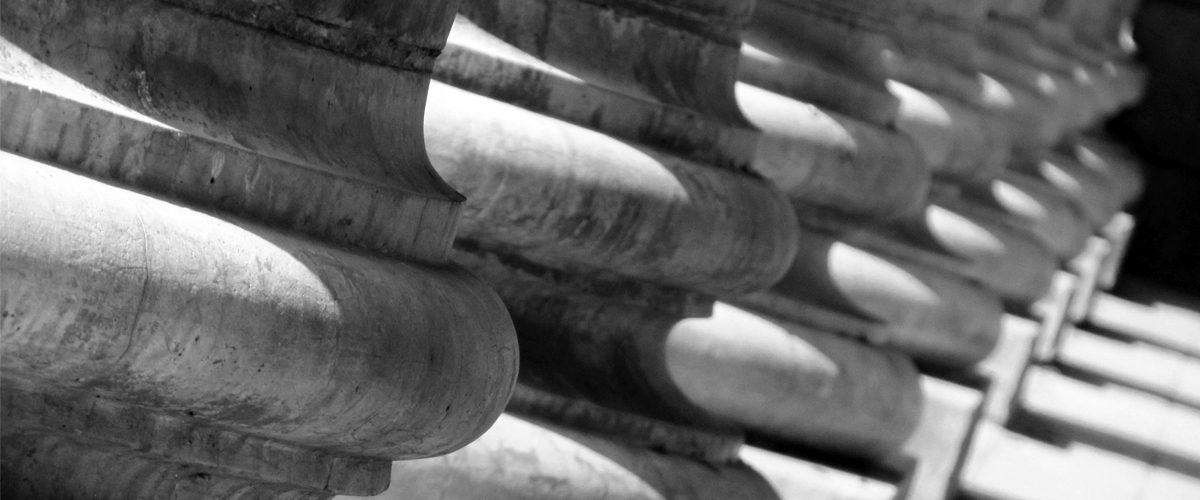DSI-NRF Centre of Excellence in Strong Materials
Background
Established in June 2004, the DSI-NRF Centre of Excellence in Strong Materials (CoE-SM) is a research network which enables researchers to collaborate across disciplines and institutions, both locally and abroad. The CoE-SM is funded by the Department of Science and Innovation (DSI) and the National Research Foundation (NRF). The CoE-SM has been undertaking research at eight South African universities and two Science Councils, and is hosted by the University of the Witwatersrand (Wits). These include The University of the Witwatersrand, Nelson Mandela University and Rhodes Universities, and the Universities of Johannesburg, KwaZulu-Natal, Limpopo, Cape Town and Stellenbosch as well as the Science Councils, Mintek and the South African Nuclear Energy Corporation (NECSA).
The CoE-SM focuses research on a wide range of strong materials, where the various institutions have specific expertise. Strong Materials are materials which retain their distinctive properties under extreme conditions and have established or potential commercial applications. They are necessary in many components and make a strong contribution to the economy of South Africa.
This research network has allowed both researchers and students to access the necessary expertise and equipment at these participating institutions. For example, the researchers at Wits have collaborated with specialised experts at the Nelson Mandela University’s Centre of High Resolution Microscopy, to solve both industrially and commercially relevant problems.
The CoE-SM works with over 50 researchers who supervise postgraduate students and postdoctoral fellows. These researchers are affiliated to the partner universities or Science Councils. Their work ranges from fundamental to applied research. The CoE-SM has worked closely with over 20 companies, including close collaborations with Element Six, Pilot Tools and iThembaLABS. The CoE-SM’s research fields are positioned within six Focus Areas. These are: Carbides and Cermets, Carbon Nanotubes and Strong Composites, Ceramic Materials, Diamond, Thin Hard Films and Related Materials, New Ultrahard Materials and Strong Metallic Alloys. In certain situations, there are some collaborations between Focus Areas.
The Schools involved with the CoE-SM include Chemistry, Chemical and Metallurgical Engineering, Physics and Mechanical Engineering. The research methods include modelling with many different codes, and experimentation using numerous facilities ranging from electron microscopy, X-ray diffraction, Mössbauer spectroscopy, laser spectroscopy, and thermal analysis. Additionally, there are facilities to manufacture specimens from castings, powder metallurgy, ion beam modification of materials, and selective deposition of thin films. Other topics of research falling under the Focus Areas include corrosion of steels, development of high temperature alloys, the development of cheaper processing methods for ceramics, as well as ceramics for high density energy storage. Research in the use of fly ash (a waste product from coal) for its potential application as an energy conserving material in efficient buildings, opto-electric applications and energy aspects of hard materials is also underway.
As well as the research itself, the CoE-SM is focused on human capital development. Since its inception, over 130 students have graduated, and over 500 papers have been published. Eight patents have also been fully registered. There are approximately 80 postgraduate students undertaking their research in the CoE-SM each year and a number of postdoctoral fellows. Working with various companies, the CoE-SM has provided a training ground for postgraduate students to either conduct their studies at the universities, or undertake their research with external companies. Students have worked with Element Six, Pilot Tools, Sasol, AcelorMittal, Anglo-Platinum, Eskom and SAB Miller, amongst others. Mintek, NECSA, CSIR, SA Welding Institute and NMISA have also been involved with the student’s research.
The CoE-SM established the African Materials Science and Engineering Network (AMSEN), funded by Carnegie through the RISE at SIG, Princeton. This network includes the Universities of the Witwatersrand, Botswana, Ghana, Namibia and Nairobi, and the Federal University of Akure, Nigeria (FUTA). AMSEN was set-up to facilitate the development of African researchers, as well as facilitating the procurement of essential equipment. Through AMSEN, students and supervisors have received broad exposure to knowledge sharing. Where equipment has not been available, they have been able to utilise the equipment within the Network.
Researchers within the CoE-SM collaborated to form the Materials for Energy Research Group (MERG). It is a research grouping of materials scientists at the University of the Witwatersrand, who focus on the study and the application of novel materials for energy production and energy storage. MERG comprises researchers from Chemistry, Engineering and Physics. A novel structure was thought to leverage the facilities and the diverse talents across different faculties involved in renewable energy research, which should focus on materials aspects, and allow for the development of novel technologies from the modelling stage to the final industrial product. MERG has collaborations with Brazil, Italy and Germany.
Since its inception over 16 years ago, the CoE-SM has achieved many successes. Official funding from the DSI and NRF ends in 2022, and to continue the knowledge building within the scientific community, the CoE-SM is considering diversifying its research and collaborating with both local and international partners to achieve this. The Centre of Excellence is an excellent model for research, knowledge building and collaboration, and the aim is to continue and expand this model.
Partners
University of the Witwatersrand (Host)
University of Johannesburg
Nelson Mandela University
University of Limpopo
Rhodes University
Stellenbosch University
University of KwaZulu-Natal
Mintek (Advanced Materials Division)
National Energy Corporation of South Africa (NECSA)
University of Cape Town
Support From
iThemba LABS (Gauteng)
Equipment List
2016 Wits Equipment List
Connect with Us on Linked-In


